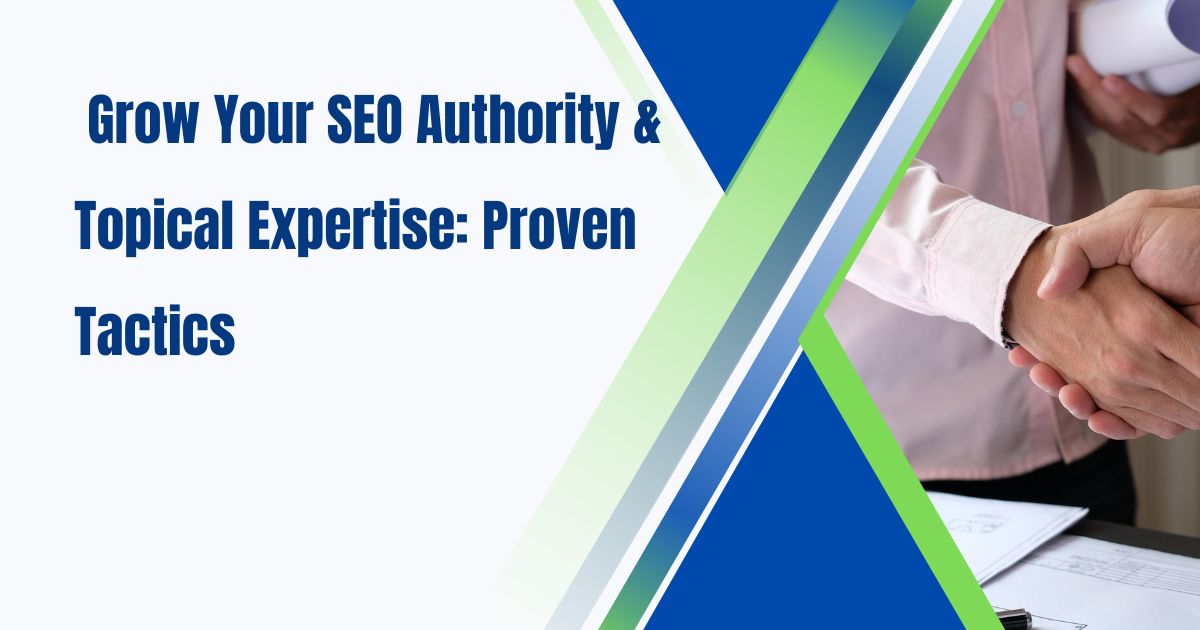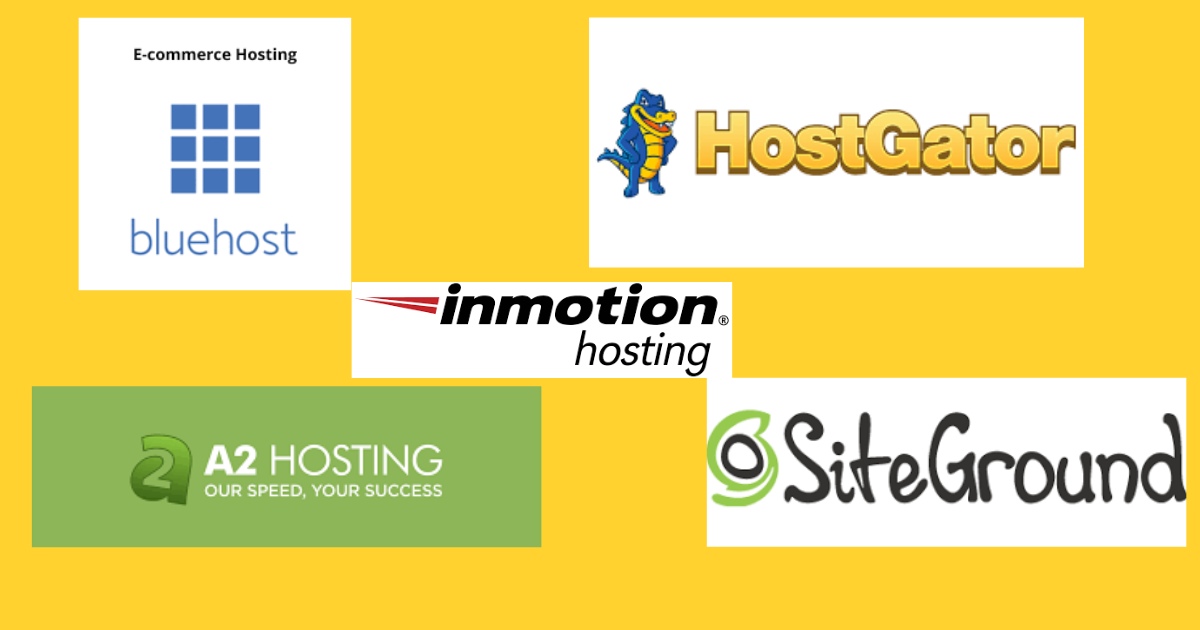To grow your SEO authority and topical expertise, create high-quality content and build relevant backlinks. Consistency and targeted keyword usage are crucial.
Growing your SEO authority and topical expertise can significantly boost your website’s search engine rankings and credibility. By focusing on creating high-quality, valuable content and acquiring relevant backlinks, you can improve your site’s visibility. Consistent posting and strategic keyword optimization are key elements in this process.
Engaging with your audience and staying updated with SEO trends also plays a vital role. Implementing these strategies effectively will help you establish authority in your niche and attract more organic traffic. The ultimate goal is to become a trusted source of information, thus enhancing your online presence and driving sustained growth.
Keyword Research
- Keyword Research is the foundation of SEO success. It involves finding the right keywords that your audience is searching for. Proper keyword research helps in understanding user intent and optimizing your content accordingly. This section will guide you through the essential steps for effective keyword research.
Finding Relevant Keywords
To start, you need to find keywords that are relevant to your niche. Use tools like Google Keyword Planner, Ahrefs, and SEMrush. These tools help you discover keywords that your audience is searching for.
- Start with broad topics related to your niche.
- Use keyword tools to generate a list of related keywords.
- Look for keywords that have a clear user intent.
Use long-tail keywords to target specific queries. These are usually less competitive and easier to rank for.
| Broad Keyword | Long-tail Keyword |
|---|---|
| SEO | SEO tips for beginners |
| Content Marketing | Content marketing strategies for small businesses |
Analyzing Search Volume
Once you have a list of keywords, analyze their search volume. This step helps you understand how often a keyword is searched for. Tools like Ahrefs and SEMrush provide search volume data.
- Enter your keyword list into the tool.
- Check the monthly search volume for each keyword.
- Prioritize keywords with a moderate to high search volume.
High search volume means more potential traffic. But it also means higher competition. Balance between search volume and competition to find the best keywords for your content.
Content Creation
Content creation is the backbone of growing your SEO authority and topical expertise. High-quality content attracts readers and signals to search engines that your site is valuable. Let’s explore key aspects of content creation that can elevate your SEO game.
Crafting High-quality Content
Crafting high-quality content is essential for SEO success. Focus on creating informative, engaging, and original content. Ensure your content is easy to read and understand. Use short sentences and simple words.
- Start with a strong headline.
- Use subheadings to break up text.
- Write in short paragraphs.
- Include relevant keywords naturally.
- Provide actionable insights and valuable information.
Make your content visually appealing. Use bullet points and numbered lists to improve readability. Add internal links to related content on your site. This keeps readers engaged and improves SEO.
Utilizing Multimedia
Multimedia can significantly enhance your content and boost SEO. Adding images, videos, and infographics makes your content more engaging and shareable.
Here are some tips for utilizing multimedia:
- Images: Use high-quality, relevant images. Add alt text with keywords.
- Videos: Embed videos to explain complex topics. Use descriptive titles and tags.
- Infographics: Create infographics to visualize data. Make them easy to share.
Ensure multimedia files are optimized for fast loading. Compress images and use responsive design. This improves user experience and reduces bounce rates.
Also Read : How To make your ecommerce content more helpful
On-page Optimization
On-page optimization is crucial for improving your SEO authority and topical expertise. It involves optimizing individual web pages to rank higher and earn more relevant traffic. Let’s dive into the key aspects of on-page optimization, focusing on Title Tags and Meta Descriptions and Internal Linking Strategies.
Title Tags And Meta Descriptions
Title tags and meta descriptions are critical for SEO success. They help search engines understand your page content. A well-crafted title tag should be concise, relevant, and include your primary keyword.
- Keep the title tag under 60 characters.
- Place the primary keyword near the beginning.
- Ensure it accurately reflects the page content.
Meta descriptions provide a brief summary of your page. They appear below the title tag in search results. A strong meta description can increase click-through rates.
- Write meta descriptions under 160 characters.
- Include relevant keywords naturally.
- Make it compelling and informative.
Internal Linking Strategies
Internal linking helps distribute link equity and boosts page authority. It also improves user experience and keeps visitors on your site longer.
- Use descriptive anchor text for links.
- Link to relevant pages within your site.
- Create a logical structure with your links.
Internal links should connect related content, guiding users through your site. This helps search engines understand the relationship between pages.
| Internal Linking Best Practices |
|---|
| Use contextual links within your content. |
| Ensure each page is accessible within a few clicks. |
| Update old content with new internal links. |
By following these strategies, you can enhance your on-page optimization efforts. This, in turn, strengthens your SEO authority and topical expertise.

Credit: www.searchenginejournal.com
Technical Seo
Technical SEO is the backbone of any successful SEO strategy. It ensures that search engines can crawl, index, and rank your site effectively. Focusing on technical aspects can boost your site’s visibility and performance. Let’s dive into two critical areas: Improving Site Speed and Mobile-Friendliness.
Improving Site Speed
A fast-loading site keeps users happy and improves rankings. Follow these steps to enhance your site speed:
- Optimize images: Use compressed formats like WebP or JPEG.
- Minimize CSS and JavaScript: Reduce file sizes and remove unused code.
- Leverage browser caching: Store static files locally for quicker load times.
- Use a Content Delivery Network (CDN): Distribute content across multiple servers.
- Enable compression: Use Gzip or Brotli to compress HTML, CSS, and JavaScript files.
Mobile-friendliness
Mobile traffic is growing rapidly. Your site must be mobile-friendly to rank well. Here are some tips:
- Responsive design: Ensure your site adjusts to different screen sizes.
- Touch-friendly navigation: Buttons and links should be easy to tap.
- Readable text: Use larger fonts and enough spacing.
- Fast loading times: Optimize for quick load times on mobile networks.
- Avoid intrusive interstitials: Ensure ads and pop-ups don’t block content.
Focus on these technical aspects to boost your site’s SEO authority and topical expertise.
Backlink Building
Backlink building is vital for growing your SEO authority. It signals search engines your content is valuable. Quality backlinks from reputable sites can boost your search rankings. This section covers two effective strategies: guest posting and building relationships.
Guest Posting
Guest posting involves writing articles for other websites. Choose sites relevant to your niche. Ensure they have high domain authority. Write high-quality, unique content for them. Include a link back to your site. This can drive traffic and improve your SEO ranking.
- Identify websites in your niche
- Check their domain authority
- Pitch relevant topics to them
- Write high-quality content
- Include backlinks to your site
Building Relationships
Building relationships with other bloggers and influencers is crucial. Connect with them through social media. Engage with their content. Comment on their posts. Share their articles. This can lead to natural backlinks.
Consider reaching out directly. Propose collaboration ideas. Offer mutual benefits. Building strong relationships can result in long-term SEO benefits.
- Connect on social media
- Engage with their content
- Share their posts
- Reach out for collaboration
- Offer mutual benefits

Credit: www.linkedin.com
User Engagement
Engaging users is crucial for building SEO authority. It helps in creating a loyal audience. Increased user engagement signals search engines about the quality of your content. Let’s explore some effective strategies for boosting user engagement.
Encouraging Comments
Comments add value to your blog. They show active user participation. Here’s how to encourage comments:
- Ask open-ended questions at the end of your posts.
- Reply to comments promptly to keep the conversation going.
- Enable easy commenting without requiring complex logins.
By encouraging comments, you build a community around your content. This can lead to higher rankings on search engines.
Social Media Interaction
Social media platforms are powerful tools for user engagement. Here are some tips:
| Platform | Action |
|---|---|
| Create polls to engage users. | |
| Host Q&A sessions. | |
| Use stories to share behind-the-scenes content. |
Engage with users by liking, sharing, and commenting on their posts. This increases visibility and strengthens your relationship with your audience.
By focusing on user engagement, you can grow your SEO authority and topical expertise. This leads to better search engine rankings and a loyal audience.
Local Seo
- Local SEO is essential for businesses targeting local customers. It helps your business appear in local search results, making it easier for potential customers to find you. By focusing on local SEO strategies, you can improve your online presence and attract more local clients.
Google My Business
Your Google My Business (GMB) profile is crucial for local SEO. It helps your business show up in Google Search and Maps.
Here are the steps to optimize your GMB profile:
- Claim and verify your business on Google My Business.
- Complete all sections of your GMB profile.
- Use accurate business name, address, and phone number (NAP).
- Add high-quality photos of your business.
- Encourage customers to leave reviews on your GMB profile.
- Respond to customer reviews promptly.
- Update your GMB profile with any changes in business hours or services.
Local Citations
Local citations are mentions of your business on other websites. They can include your business name, address, and phone number. Local citations help improve your local search rankings.
Here are some tips to build and manage local citations:
- Ensure NAP consistency across all local citations.
- Submit your business to local directories like Yelp, Yellow Pages, and TripAdvisor.
- Use structured data markup to improve local SEO.
- Monitor your local citations for accuracy.
- Correct any inconsistencies in your local citations.
Having consistent and accurate local citations builds trust with search engines. It helps improve your local search visibility.
Analytics And Monitoring
Analytics and monitoring are crucial for SEO success. Regularly tracking your performance helps you understand your strengths and weaknesses. It allows you to adjust your strategies effectively. This section will cover the essential steps for tracking and adjusting your SEO tactics.
Tracking Performance
Tracking your website’s performance is essential for SEO growth.
Here are some key metrics to monitor:
- Organic Traffic: Measure the number of visitors from search engines.
- Keyword Rankings: Track your position for important keywords.
- Backlink Profile: Analyze the quality and quantity of backlinks.
- Click-Through Rate (CTR): See how often users click on your links.
- Page Load Speed: Ensure your site loads quickly for better user experience.
Use tools like Google Analytics and Google Search Console. These tools provide valuable insights into your website’s performance.
Adjusting Strategies
Once you have collected data, adjust your strategies accordingly. Follow these steps:
- Identify Weak Areas: Look for pages with high bounce rates or low traffic.
- Update Content: Refresh outdated content and add new keywords.
- Improve User Experience: Enhance site navigation and design.
- Build More Backlinks: Focus on acquiring high-quality backlinks.
- Optimize Mobile Experience: Ensure your site is mobile-friendly.
Regularly reviewing and adjusting your strategies will keep your SEO efforts on track. Stay proactive and make data-driven decisions to grow your SEO authority and topical expertise.
Content Updating
Keeping your content updated is essential for maintaining your website’s SEO authority. Regularly updating content helps ensure it remains relevant, accurate, and valuable to readers. This section explores methods to refresh old content and add new insights for improved SEO performance.
Refreshing Old Content
Refreshing old content breathes new life into your existing articles. Start by identifying outdated posts. Use analytics tools to find pages with declining traffic.
- Update statistics and data with the latest information.
- Replace broken links with current, relevant resources.
- Revise headlines to be more engaging and SEO-friendly.
Enhance readability by breaking up large blocks of text. Use subheadings, bullet points, and images. Optimizing for new keywords can also boost your SEO rankings.
Adding New Insights
Adding new insights keeps your content fresh and valuable. Include recent developments, case studies, or expert opinions related to your topic.
- Conduct thorough research to find the latest trends and updates.
- Incorporate multimedia elements like videos, infographics, and charts.
- Expand on existing points to provide deeper understanding.
Engage readers with interactive elements like quizzes or polls. This not only enriches the content but also increases user engagement. Consistently adding new insights showcases your topical expertise.

Credit: www.beingguru.com
Future Trends
The digital landscape is ever-evolving. Staying ahead with the latest SEO trends is crucial. These trends will shape how businesses optimize their websites and content. Here are some key future trends to watch.
Voice Search Optimization
Voice search is growing rapidly. More people use voice assistants like Alexa and Siri. Optimizing for voice search is vital. Focus on natural language and question-based queries.
- Use conversational keywords.
- Include question phrases in your content.
- Provide direct answers to common questions.
| Voice Search Optimization Tips |
|---|
| Optimize for long-tail keywords. |
| Structure content for quick answers. |
| Ensure your website loads quickly. |
Ai And SEO
Artificial Intelligence (AI) is revolutionizing SEO. AI tools can analyze vast amounts of data. This helps in understanding user behavior and preferences.
- Use AI for keyword research.
- Leverage AI for content creation.
- Employ AI for predictive analytics.
AI can also improve user experience. It helps in personalizing content and recommendations. This leads to higher engagement and better rankings.
Implementing AI can save time and resources. It allows for more accurate predictions and strategies.
Frequently Asked Questions
How Do I Increase My Seo Authority?
Increase your SEO authority by creating high-quality content, earning backlinks, optimizing on-page SEO, improving site speed, and engaging on social media.
What Is Topical Authority In Seo?
Topical authority in SEO refers to a website’s expertise and credibility in a specific subject area. It helps improve search rankings.
What Are The 3 Core Must Haves Of Seo?
The 3 core must-haves of SEO are quality content, relevant backlinks, and proper on-page optimization. These elements boost search engine rankings and enhance visibility. Quality content engages users, relevant backlinks build authority, and on-page optimization ensures search engines understand your content.
What Are The Three Steps To Optimize Your Seo?
Optimize your SEO by conducting keyword research, creating high-quality content, and building backlinks from reputable sites.
Conclusion
Mastering SEO authority and topical expertise is essential for online success. Follow these ten steps to boost your visibility. Consistent effort and strategic planning will yield significant results. Stay updated with the latest trends and continuously refine your approach. Soon, you will see your website’s authority and expertise flourish.











Leave a Reply